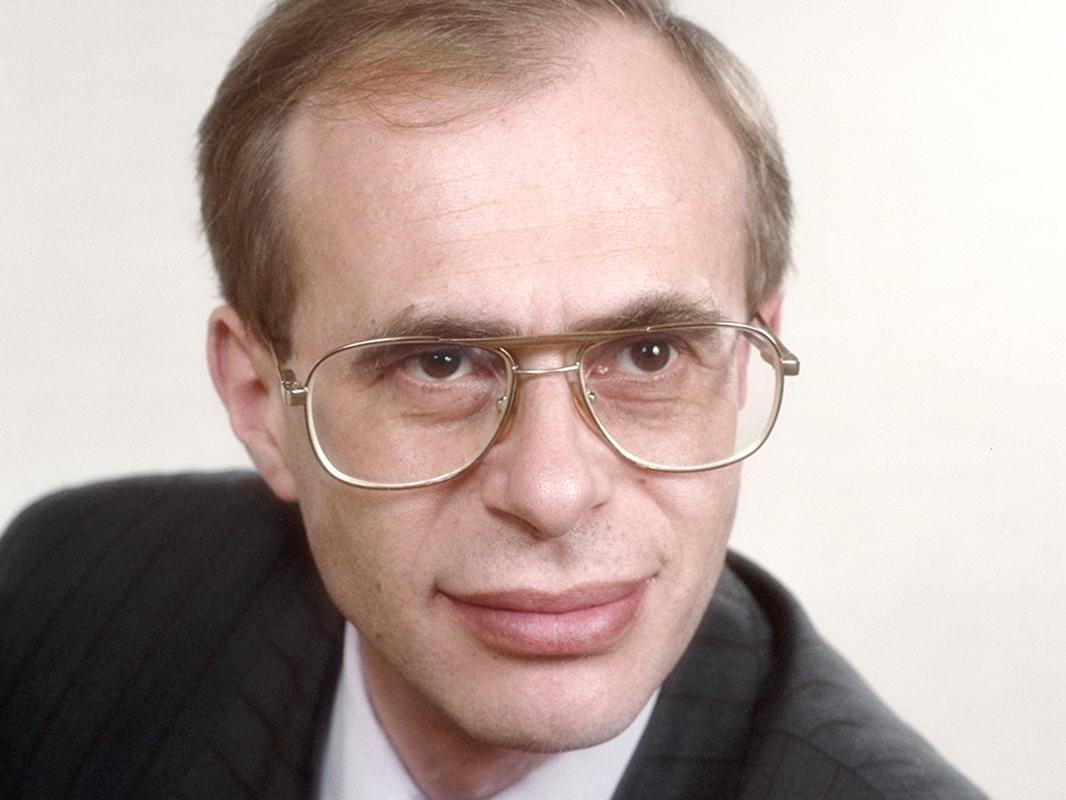Vladimir Lopukhin: Energy minister as the USSR collapsed
Like many others who pioneered Russia’s transition from central planning to capitalism, Lopukhin had deep roots in the old system he worked to demolish

Your support helps us to tell the story
From reproductive rights to climate change to Big Tech, The Independent is on the ground when the story is developing. Whether it's investigating the financials of Elon Musk's pro-Trump PAC or producing our latest documentary, 'The A Word', which shines a light on the American women fighting for reproductive rights, we know how important it is to parse out the facts from the messaging.
At such a critical moment in US history, we need reporters on the ground. Your donation allows us to keep sending journalists to speak to both sides of the story.
The Independent is trusted by Americans across the entire political spectrum. And unlike many other quality news outlets, we choose not to lock Americans out of our reporting and analysis with paywalls. We believe quality journalism should be available to everyone, paid for by those who can afford it.
Your support makes all the difference.Vladimir M Lopukhin became energy minister of the Russian Federation, the biggest component of the Soviet Union, in November 1991 – taking charge of a vast but crumbling oil and gas sector and the backbone of the economy. Within weeks, the Soviet empire collapsed.
The appointment made him a key member of the government that led Russia’s exit from the Soviet Union and put him at the centre of some of the fiercest battles over the nation’s future.
Lopukhin pushed for the creation of so-called vertically integrated oil companies in place of a Soviet setup in which oil exploration, drilling, transport and sales were each handled by separate state-owned companies. This and other proposals quickly ran into opposition from veteran managers and also from some fellow ministers who believed that assets should first be privatised and only then reorganised.
He nonetheless presided over the genesis of what would later become major private Russian oil companies, including Lukoil. Perhaps his most important legacy, however, was the preservation of Russia’s enormous natural gas industry as a single entity. The state-controlled company that resulted, Gazprom, still has near monopoly control of Russian gas.
Lopukhin died on 24 May in a Moscow hospital. The cause was the new coronavirus, his family said. He was 68.
Like many others who pioneered Russia’s transition from central planning to capitalism, Lopukhin had deep roots in the old system he worked to demolish. His father, Mikhail, was a senior KGB officer expelled from the United States for espionage while posing as a Soviet journalist. His ancestors were said to include the first wife of Peter the Great, the early 18th-century Russian czar.
But unlike some other free-marketers who held high office during and immediately after the December 1991 collapse of the Soviet Union, Lopukhin – who married four times and had four children – did not become a multimillionaire. More interested in books than bling, he retained the impish humour and informal habits of his earlier academic career.
Vladimir Mikhailovich Lopukhin was born on 23 May 1952, in Moscow. He graduated in 1974 with a degree in economics from Moscow State University and went to work for various Soviet research institutes, coming into contact with others who would later enter government.
For much of the 1980s, he headed a small research team at the Institute of Economic Forecasting, an influential brain trust which helped develop economic ideas for the last Soviet leader, Mikhail S Gorbachev, and Russia’s first elected president, Boris Yeltsin.
He specialised in the Soviet oil industry and shuttled between Moscow and the Siberian oil region of Tyumen. In 1990, he realised “that the country was finished,” he recalled in an interview published in 2013. “We had to provide either bread or oil. Otherwise there would be chaos. I knew nothing about bread so I decided I would go back to the oil sector.”
Irene Commeau, a Frenchwoman who met and later married Lopukhin while serving as the Moscow representative of the European Bank for Reconstruction and Development, recalled visiting him at the energy ministry. His office, she said in a phone interview, was full of oil barons from Siberia, “all two metres tall, smoking and shouting”.
Resented by veteran energy managers, sniped at by fellow reformers and targeted for attack by parliament, Lopukhin lasted just six months in office before he was fired by Yeltsin.
“I slept three hours a day,” Lopukhin recalled years later. “I lost a tooth for every month in my ministerial term of office.” The energy ministry – ultimately responsible for keeping factories running, apartments heated and the government in power – “was a bone-breaking machine,” he said.
His period in government was followed by nearly three decades out of the limelight when he worked as a banker, mostly with an affiliate of Lazard Frères of France, and as a consultant.
Vladimir Mikhailovich Lopukhin, politician, born 23 May 1952, died 24 May 2020
© The New York Times
Join our commenting forum
Join thought-provoking conversations, follow other Independent readers and see their replies
Comments